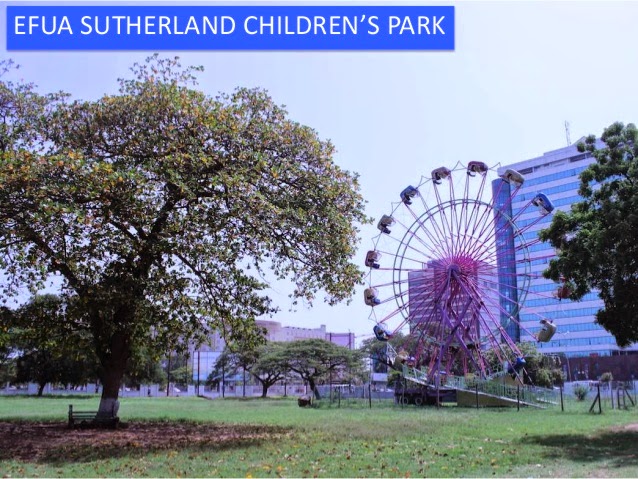Politicians blamed for lack of open spaces in cities
By Edmund
Smith-Asante, ACCRA
 |
| Spaces like this are hard to come by |
Members
of three professional groups have attributed the absence of open spaces in the
cities to the lack of understanding of their purpose by political appointees
and district assemblies.
The
groups are architects, engineers and town planners.
Open
spaces are designated as public parks for recreational, relaxation and other
social purposes.
Speaking
at a mid-term general meeting of the Ghana Institute of Architects (GIA) on the
theme; “The Public, Architects and Open Spaces”, the President of the GIA, Mr
Joseph Hayford, said “public parks are for the community and their maintenance
and protection fall with the district assemblies or the municipal authorities.
Mr
Hayford attributed the lack of open spaces to the inability of the assemblies
to preserve them and urged the public to question the authorities if they found
that public spaces were being used for other purposes and also help in raising
funds to maintain the spaces.
Disconnect
The
Director of Town and Country Planning, Mr Kofi Danquah Osei, said the greatest
challenge of his outfit was that there was a disconnect in the implementation
of the plans they made because the district assemblies did not appreciate their
work.
“Until we
get them to understand these things we will not make any progress,” he stated.
He urged
professionals in the building environment to “find a solution to our one major
hurdle” by making the political appointees understand why open spaces must be left.
The
President-elect of the Ghana Institution of Engineers (GhIE), Mr Kweku
Boampong, said “today open spaces in our cities are not anything to write home
about. Walkways, cycle ways and other places of convenience have been taken
over by hawkers and we lack very dignified open spaces.”
He said
Tema, which could boast of dignified open spaces in each of the communities
today had had them re-zoned or taken over by hawkers.
Stressing
the importance of open spaces, he quoted Ezekiel 48:17 of the Bible which reads
“the city shall have open spaces.” Mr Boampong also said the United Nations
biodiversity requirement was that each human being should have at least 12m2 of
a green area.
Delivering
the keynote address on the topic; “Greening them all: An architect’s vision
of open spaces”, Prof Henri Adziri Wellington of the Department of
Archeology, University of Ghana, said that traditional authorities, policy
makers, politicians, market women and porters, had all contributed to the
littering and destruction of open spaces through their reckless sense of
stewardship.
Mr
Boampong described open spaces as opportunities to enjoy nature and socialise,
saying that open spaces were needed to allow men to interact with nature.
Non-involvement
of local architects
In an interview
with the Daily Graphic, Mr Hayford said just a negligible number of
local architects were involved in government funded projects.
He said
the law assigned certain types of buildings and projects to be designed by
architects but this was most times not adhered to.
My
Hayford stated that foreign consultants also came in because most of the
projects were funded through external sources, although the way they came in
was at variance to the law.
He said
the GIA was therefore taking steps to enforce the right procedure, which
includes the registration of all foreign architects who will work in Ghana, so
that local architects would be able to bring their skills to the projects.
Writer’s email: edmund.asante@graphic.com.gh
This
story was first published by the Daily
Graphic on February 21, 2015



Comments
Post a Comment